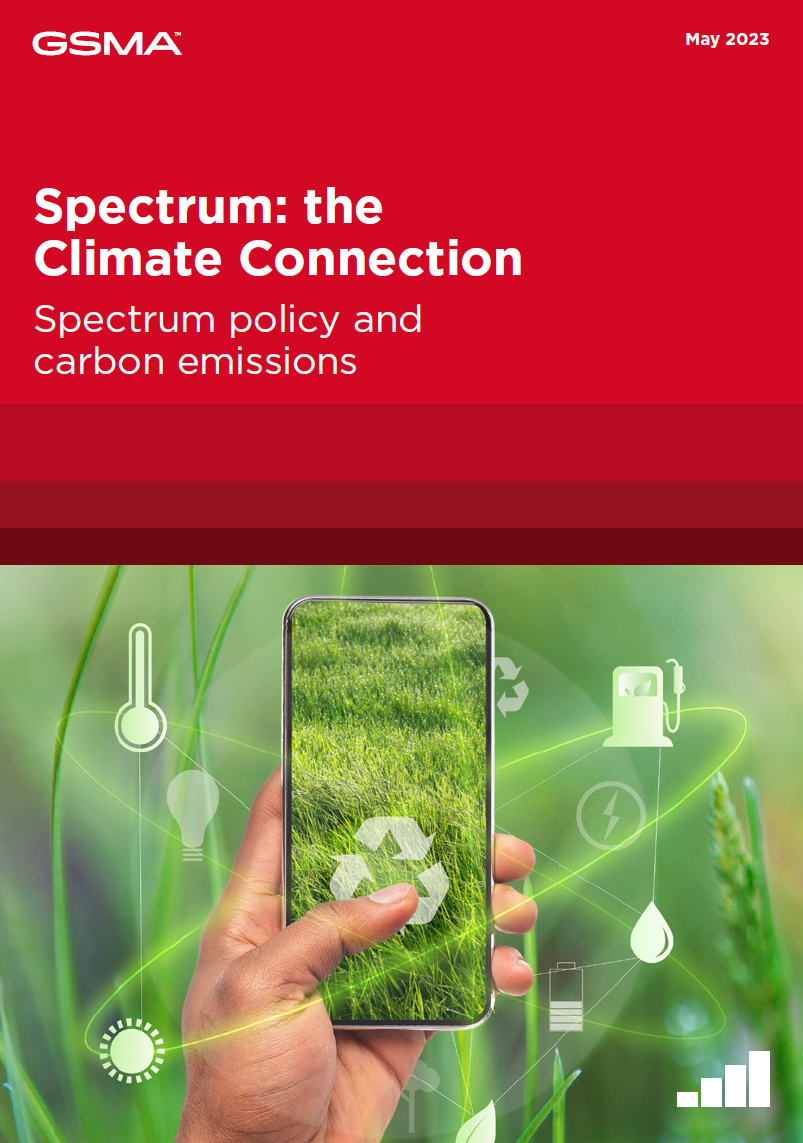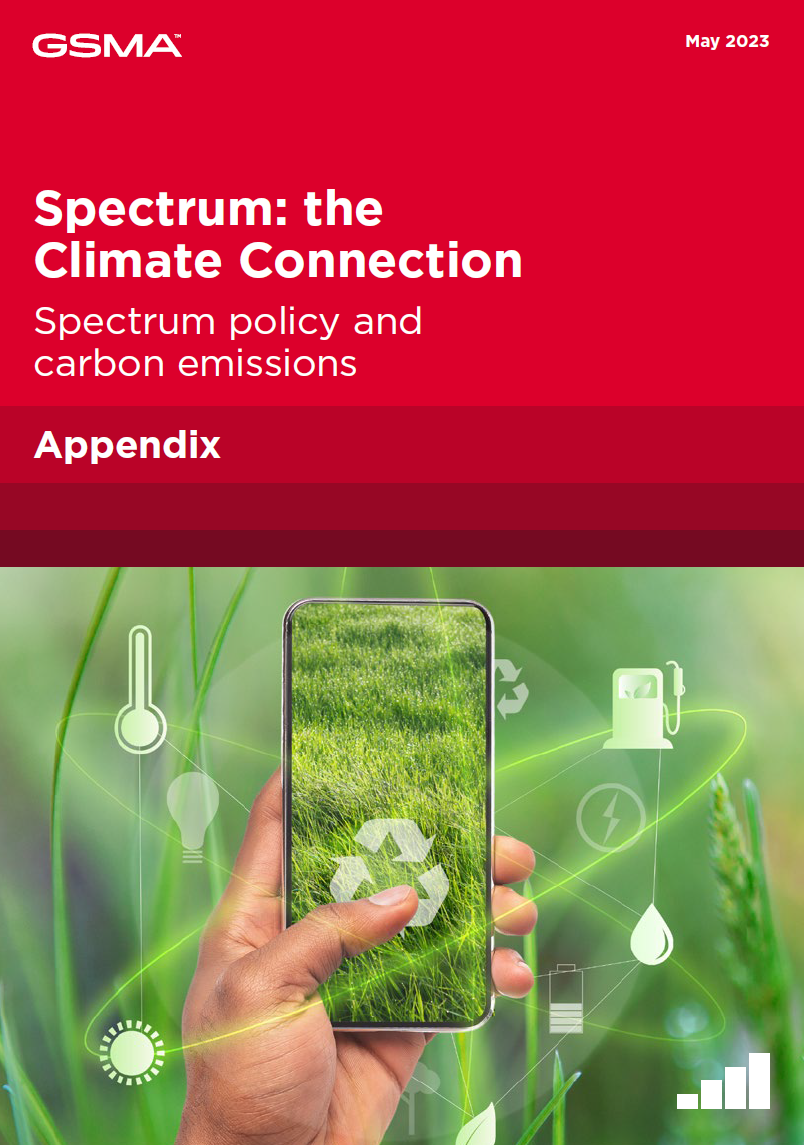Spectrum policy has the potential to tackle climate change. Efficient use of spectrum can lead to a reduction in carbon emissions while simultaneously generating economic benefits to society. More efficient networks with fewer base stations will increase energy efficiency of mobile. Even more important is the enabling effect of these networks to save carbon from other industries.
A new GSMA report evaluates the impact of four spectrum policy aspects on carbon emissions that can vary between countries:
- The timeliness of spectrum assignments: Late 5G assignments can slow the adoption of technologies that improve energy efficiency.
- The amount of spectrum assigned: With less spectrum, more base stations are needed to meet the demand for mobile data, increasing the sector’s impact through the supply chain.
- The level of fragmentation: Fragmented spectrum reduces spectrum usage due to the need for guard bands. Fragmented spectrum also forces operators to rely on carrier aggregation technology to deliver fast connectivity. These two consequences reduce network energy efficiency and increase emissions in the mobile sector and beyond.
- The flexibility to use spectrum for different technologies: Spectrum assignments that are not technology-neutral can tie the operators to older, less efficient technologies.
Download this report to find out how efficient spectrum policy can support the race to net zero – reducing the carbon emissions of the mobile sector and increasing mobile’s enabling effect to help other sectors tackle climate change.
In 2016, the mobile industry was the first industry to commit fully to the 17 United Nations Sustainable Development Goals (SDGs). Find out more about the industry’s progress to be net zero by 2050 here.




